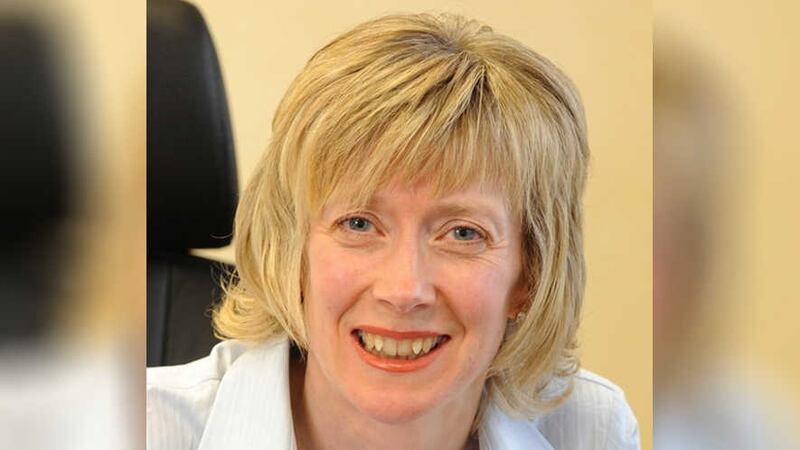Micheál Martin’s approach to Irish unity is best characterised as ‘softly, softly’. When the Fianna Fáil leader is asked if he envisages a 32-county republic in his lifetime, he responds by saying he “hopes for unity of the people on this island... the precise configuration of that, who knows?”
“The future has to be based on the three sets of relationships that underpin the Good Friday Agreement – the British-Irish, north-south, and the two historic traditions in Northern Ireland,” he says.
“The fulcrum may change between London and Dublin in the fullness of time but the most important thing is that people can be comfortable in each other’s company in a very basic way, and live happily together through all the facets of life, and whatever political configurations enable that, will emerge.”
He reveals that despite an occasionally tetchy relationship in the past with Ireland’s Future, he hasn’t ruled out joining the likes of Leo Varadkar, Colum Eastwood and Naomi Long at one of the civic nationalist group’s events.
“I’ve met them before – it would depend on the event and what was being asked,” he says of a prospective invitation.
“I’ll pick my moments, when I want to speak on Northern Ireland. I’m strong enough, confident enough not to be brow beaten into any scenario.”
The tánaiste says the priority for those seeking unity, in the first instance, should be “to make the current institutions work”.
“I think if people are comfortable working with each other things will work,” he says.
The foreign affairs minister is immensely proud of the Shared Island initiative, which he launched in 2021 when taoiseach. This week’s announcement of some €800m (£684m), with money pledged to the A5 upgrade, Casement Park and an assortment of other cross-border projects, was arguably its finest hour.
“They’re all about connectivity; they’re about solving mutual problems, mutual concerns,” he says.
He is therefore disappointed that controversy around Casement Park is overshadowing what should be a positive development.

“I’m concerned that sport is becoming an issue of contention and it shouldn’t be,” he says, in reference to the brewing dispute at Stomont, and beyond, about who else will fund construction of the 34,500-capacity stadium in west Belfast.
The Fianna Fáil leader also plays down claims by the GAA Ulster secretary Brian McAvoy that the organisation can claim sole credit for securing the Irish government’s €50m (£42.7m) contribution.
“They did make representations but the money is allocated by the Irish government for the project,” say Mr Martin.
“I’m surprised that people are focussing on this. I don’t think it’s a big issue in terms of who got the money, just that the money has been allocated to the project. The GAA asked us to prioritise it and we have. I wouldn’t get excited about that.”
He declines to give an opinion on whether the GAA should give more than the £15m pledged so far, saying he doesn’t want to comment any further.
“I’m not going to get embroiled in any controversy around this,” the tánaiste says.
“This is the Irish government’s allocation in good faith, a very significant allocation to a good project that will facilitate the hosting of the Euros in Belfast – simple as that.”

The delivery and success of Euro 28, a joint east-west bid, is reliant to some degree on Dublin and London remaining on good terms.
The foreign affairs minster says relations are better than they were but not perfect.
“I think there are some challenges,” he says, citing the inter-state case brought by the Irish government in response to the British government’s controversial legacy legislation.
“We took the legacy case with reluctance because we would have preferred if it could have been resolved by negotiations and discussions between the two governments and the five parties,” the tánaiste says.
“Our position has always been that the Irish government and British government are co-guarantors of the (Good Friday) Agreement – all strands are interconnected, so if strand one doesn’t work, strand two’s negatively impacted.”
What he terms “the long shadow of Brexit” hangs over Northern Ireland, and has “not been good for the Good Friday Agreement”.
“I think Prime Minister Sunak and Secretary of State Chris Heaton-Harris have made valiant efforts to improve upon that relationship. I think the Windsor Framework was a breakthrough,” he says.
“Where I would say that there needs to be improvement is in the spirit of the Good Friday Agreement, where both governments should be in lockstep together on most issues, working closely so there are no surprises.”
He does have “concerns in terms of some of the language” used in the Safeguarding the Union command paper but “no particular elements you can pinpoint”.
“We decided, in the overall interest, that the restoration of the assembly and executive was key,” he says.
“We think the references to the all-island economy were unnecessary. There were some references somewhere that’s it’s a divisive term. I mean, it shouldn’t be a divisive term. In any event, I’m not a person who gets overly hung up on symbols and language because the reality is the world of business in the world of enterprise carries on anyway.”
Considering the possibilities for the make-up of the next Dublin government, Mr Martin won’t categorically rule out coalition with Sinn Féin but proceeds to list a number of reasons why it’s an unlikely outcome.
“At this stage, we haven’t ruled anything out but I’d say that from a policy platform basis, we don’t see their policies as reconcilable with ours so we would prefer to go into government with like-minded parties on the economy and especially on foreign policy,” he says.
Regarding the continuing Israeli bombardment of Gaza that has claimed the lives of 30,000, the tánaiste is reluctant to term it genocide but says “international humanitarian laws have certainly been violated”.
He argues that the US government “is doing everything it can to stop this” but says that Israel has a “powerful, strong influence over Republicans and Democrats, and that’s influencing the American political response”.
Mr Martin still believes in a two-state solution and believes the current crisis makes that aim more pressing.


